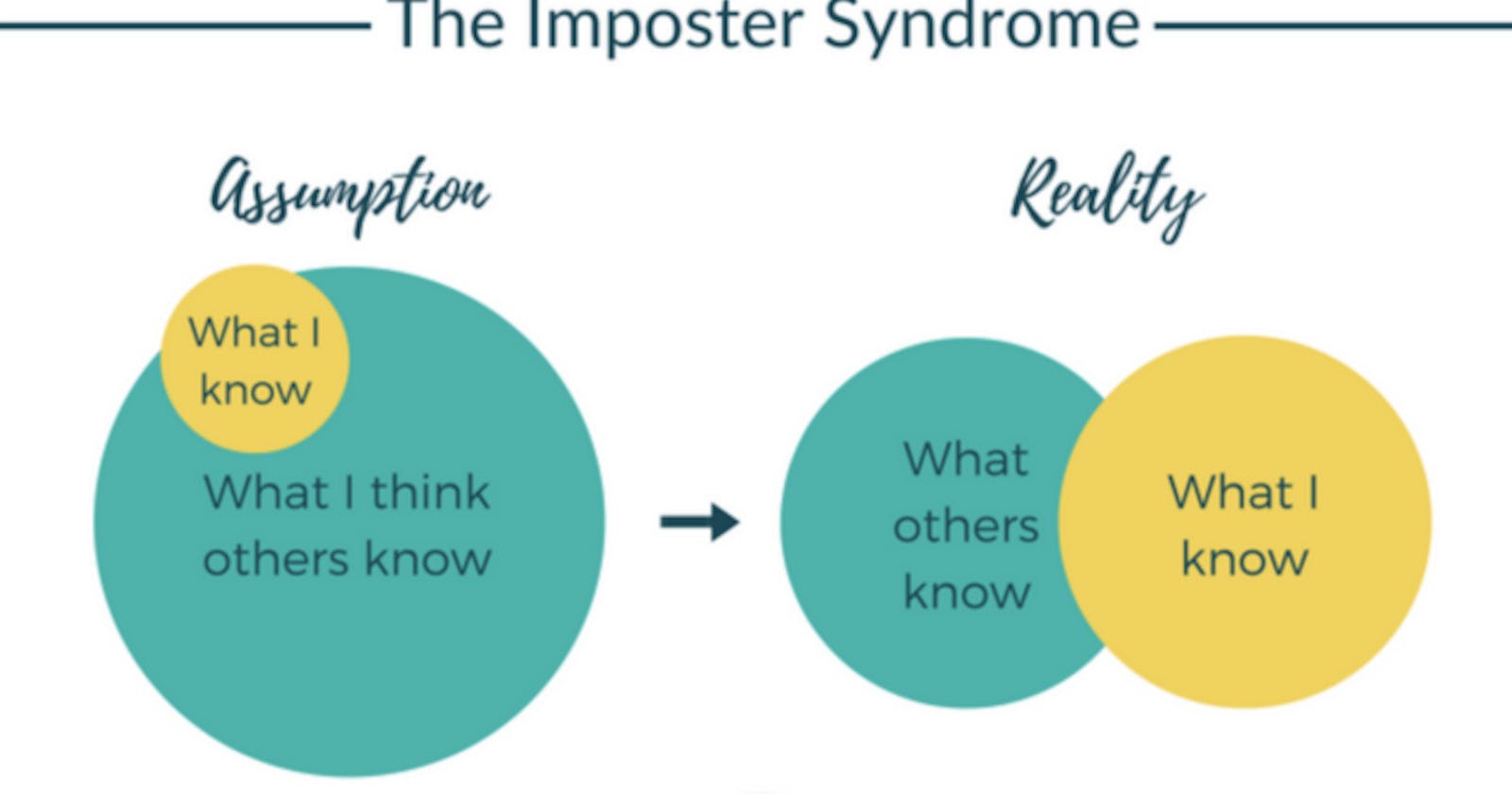Looking within and comparing with the expectation of the outside, you sense a gap. A gap in terms of skills, look, behaviour, status and many more. Dwelling in this gap created the concept of the Imposter Syndrome
The imposter syndrome is a fancy way of saying, "I don't think I'm worth it. I don't think I'm good enough. I don't think I know enough." It's thinking that the capacity you are perceived as is not what you have. It is others believing in you more than you believe in yourself. It is a collection of feelings of inadequacy that persist despite evident success.
Every person at a point in their lives has had a taste of this self-inflicted plague. The conscious effort to move past it is a decision that has to be made upon realising its existence.
To know if you have the plague, ask yourself the following questions:
- Do you think you're lucky?
- Do you think failure is not an option?
- Do you downplay your own expertise, even in areas where you are genuinely more skilled than others?
- Do you think you're a fraud?
- Do you constantly compare yourself with others?
To identify the deploy rooted beliefs binding you to the imposter syndrome, you first need to partake of the reflective practice .
Here are some techniques you can use to overcome the plague:
- Celebrate your wins: Every little thing you do forms part of a larger purpose. Learn to celebrate it and your drive to get to the final destination will not burn out.
- Stop comparing yourself: Just stop this already, it never does any good. Your path and potential are different from the person sitting beside you. Focus on yourself and what makes you happy.
- Learn from failure: You can only be very good at something if you've failed before. By failing, you learn how to not do something or how to do it better. Remember, Edison made 1,000 unsuccessful attempts at inventing the light bulb.
- Talk about your feelings: Talk to other people about how you are feeling. These feelings might become worse if not spoken about.
- Assess your skills: If you believe you're incompetent in a certain area, carry out an honest assessment of the skill. Compare your assessment with your accomplishment.
Note: You don't get cured overnight; it takes time. Don't beat yourself over not being able to overcome what you think you should have already. It is better to move at the speed of a snail than to not move at all.
If you like this article, feel free to comment and share. You can also reach out to me on Twitter | LinkedIn | Github
Ciao👋🏼

